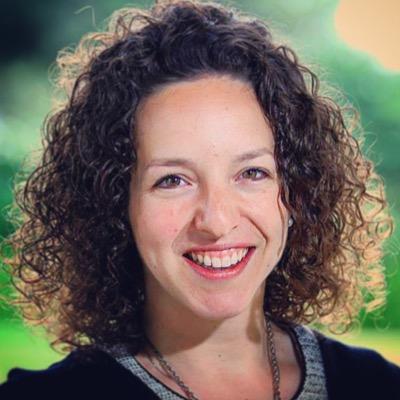Today, General Motors (GM)’s Director of Sustainability, David Tulauskas; GM’s Manager of Renewable Energy, Rob Threlkeld; WWF’s Director of U.S. Climate and Renewable Energy Policy, Marty Spitzer; The Climate Group and TriplePundit came together to discuss GM’s renewable energy goals amidst the backdrop of Climate Week NYC!
General Motors plans to generate or source all electrical power for its 350 plants in 59 countries with 100 percent renewable energy, including wind, sun and landfill gas, by 2050. This new renewable energy goal, along with the pursuit of electrified vehicles and efficient manufacturing, is part of the company’s overall approach to strengthening its business, improving communities and addressing climate change.
“Establishing a 100 percent renewable energy goal helps us better serve society by reducing environmental impact,” said GM Chairman and CEO Mary Barra. “This pursuit of renewable energy benefits our customers and communities through cleaner air while strengthening our business through lower and more stable energy costs.”
GM will join RE100, a global collaborative of businesses committed to 100 percent renewable electricity, working to increase demand for clean power. It is also a founding member of the Renewable Energy Buyers Alliance and Business Renewables Center, and one of the first signatories of the Renewable Energy Buyers’ Principles.
“This bold and ambitious commitment from General Motors will undoubtedly catch the attention of the global automotive industry,” said Amy Davidsen, North America executive director for the Climate Group. “GM has already saved millions of dollars by using renewable energy, and like any smart business that recognizes an investment opportunity, they want to seize it fully.”
During #GM100, we discussed the following and much more:
- How GM has pioneered the use of renewables for over 20 years, saving $80 million to date,
- How the company’s dozens of facilities experienced with solar arrays, landfill gas and and wind energy will help scale renewable energy to all facilities globally,
- And, how GM will continue to work with cities, policymakers, renewable energy developers, utilities, NGOs and other stakeholders on the transition to a clean-energy economy.
FEATURED GUESTS:
- Rob Threlkeld (@RobThrelkeld) - Manager of Renewable Energy at GM
- David Tulauskas (@DavidTulauskas) - Director of Sustainability at GM
- The Climate Group (@ClimateGroup) - Host organization for Climate Week NYC
- Marty Spitzer (@MartySpitzer) - Director of U.S. Climate and Renewable Energy Policy at World Wildlife Fund
---
About General Motors Co. GM and its partners produce vehicles in 30 countries, and the company has leadership positions in the world's largest and fastest-growing automotive markets. GM, its subsidiaries and joint venture entities sell vehicles under the Chevrolet, Cadillac, Baojun, Buick, GMC, Holden, Jiefang, Opel, Vauxhall and Wuling brands. For more information on GM’s environmental commitment, visit its sustainability report and environmental blog.
About World Wildlife Fund For 50 years, WWF has been protecting the future of nature. The world’s leading conservation organization, WWF works in 100 countries and is supported by 1.2 million members in the United States and close to 5 million globally. WWF's unique way of working combines global reach with a foundation in science, involves action at every level from local to global, and ensures the delivery of innovative solutions that meet the needs of both people and nature.
About The Climate Group The Climate Group is an award-winning, international non-profit specializing in high-impact climate and energy initiatives with the world’s leading businesses and state and regional governments. Its mission is to catalyze climate leadership to accelerate the shift to a prosperous and thriving ‘net-zero’ future for all. Founded in 2004, The Climate Group’s offices are located in Beijing, Hong Kong, New Delhi, New York and London.

Marissa is the Owner of Climate Social, LLC. She holds a bachelor's degree in communications from Mizzou and a master's in environmental studies from UPenn.














